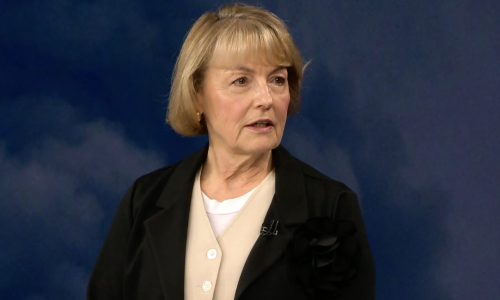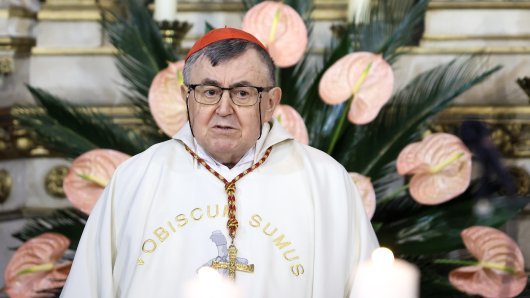European Union Enlargement Commissioner Stefan Fuele in Brussels on Tuesday expressed hope that Croatia and Slovenia would find a mutually acceptable solution to the Ljubljanska Banka issue and thus remove the uncertainty about the ratification of Croatia's EU Treaty of Accession in Slovenia.
I hope Croatia will be able to meet its obligations in resolving some remaining bilateral issues. I truly hope a mutually acceptable solution to the Ljubljanska Banka issue will be found, Fuele said at a conference on EU enlargement in Western Balkans, organised by the European People's Party (EPP).
The Croatian and Slovenian foreign ministers, Vesna Pusic and Karl Erjavec respectively, are scheduled to meet in Brussels on Wednesday evening to discuss this outstanding issue. Over the past several days, both countries have been signaling that their positions are drawing closer. Slovenia is the only EU member country that has not yet launched the ratification of Croatia's EU Accession Treaty.
Fuele said he was optimistic about the final monitoring report on Croatia which the European Commission is scheduled to release this spring and in which it will assess whether Croatia has met ten tasks identified in the previous EC report.
I am satisfied, Croatia is on the right track when it comes to meeting the ten tasks we have identified in the last report. I am optimistic about it, Fuele said.
The chairman of the conference, MP Gunnar Hoekmark of Sweden, who is also co-chairman of the Joint EU-Croatia Parliamentary Committee, said bilateral issues must not hamper the enlargement process.
Of the five member states that have not yet ratified the treaty, only one has not yet launched the ratification process over a bilateral issue. Bilateral issues should not burden any stage of the enlargement process. I would like to call for common sense and a bilateral solution to the Ljubljanska Banka issue in the interest of the entire European Union, Hoekmark said, calling on the remaining EU members that have not yet ratified Croatia's EU accession treaty to do so as soon as possible.
Speaking about the relations between Croatia and Slovenia, the head of the EPP caucus in the European Parliament, Joseph Daul, stressed the importance of good neighbourly relations and solidarity among neighbours. Poland would not be where it is today without Germany's help, Baltic countries made significant progress thanks to Sweden and Finland, Hungary had Austria's support. Your neighbours are valuable allies, Daul told the conference which, apart from MEPs, is also attended by representatives of the European Commission and EU hopefuls from the region. One of the main speakers at conference was vice president of the Croatian Democratic Union Dubravka Suica.
MEP Jelko Kacin of Slovenia reiterated his positions to reporters that the Croatian government was responsible for removing obstacles for the ratification of Croatia's EU accession treaty in the Slovenian parliament.
Asked about his expectations of the meeting of the two countries' foreign ministers, Kacin said he hoped for progress, but that Zagreb was sending uncoordinated messages.
Foreign minister Vesna Pusic is trying very hard to achieve a compromise, but her deputy (Josko Klisovic) is burying himself deeper and deeper. There can be no compromise until everyone in the Croatian government speaks the same language, Kacin said.




































